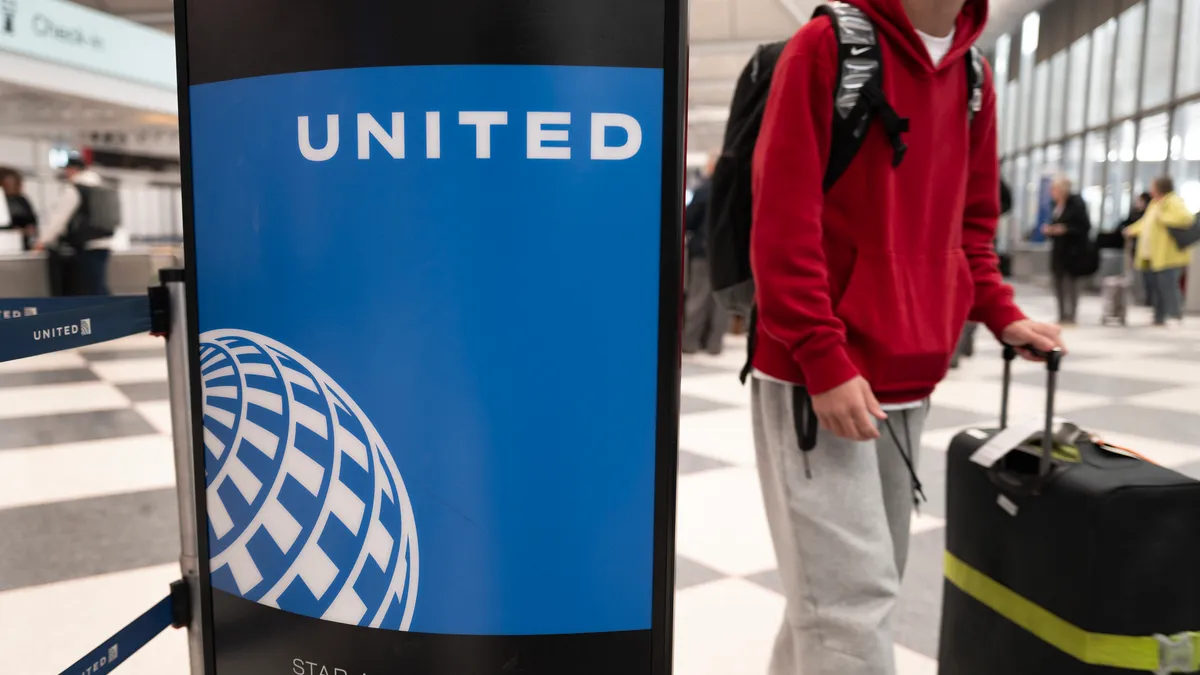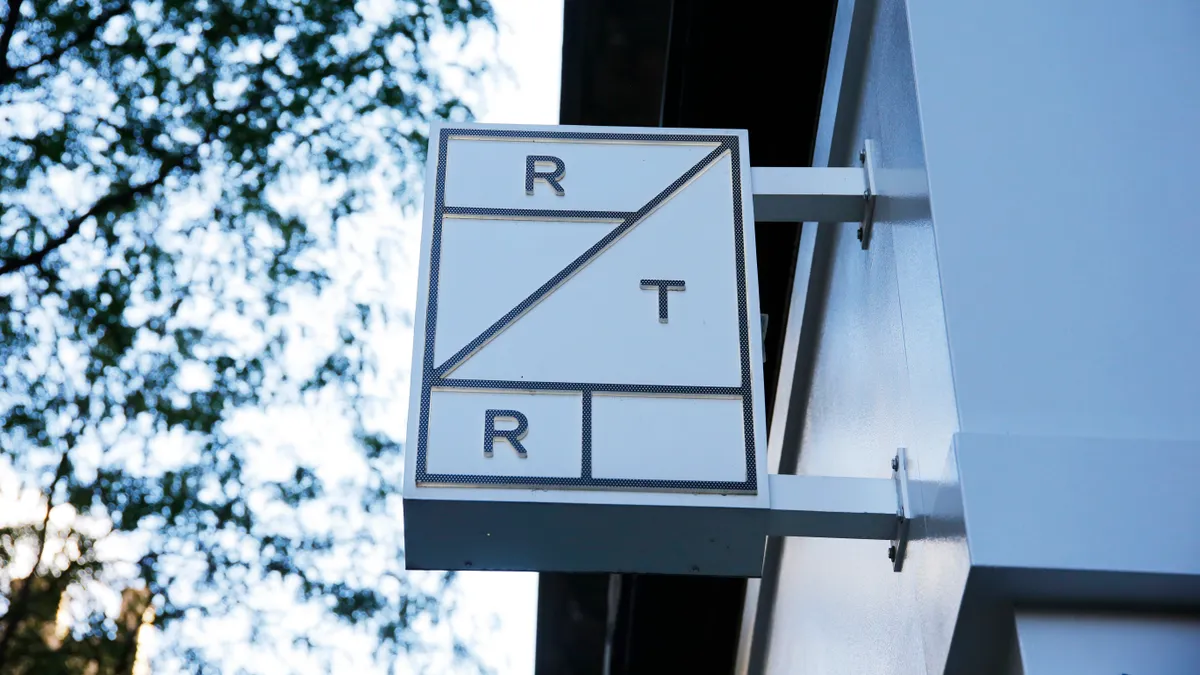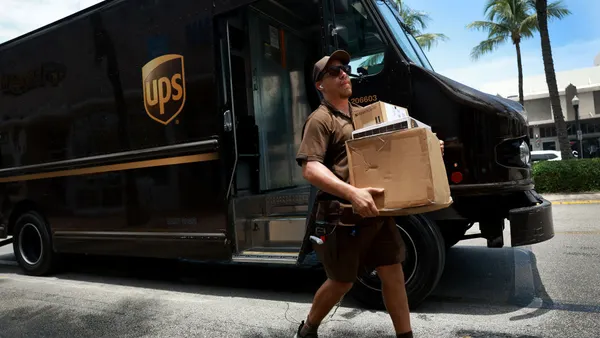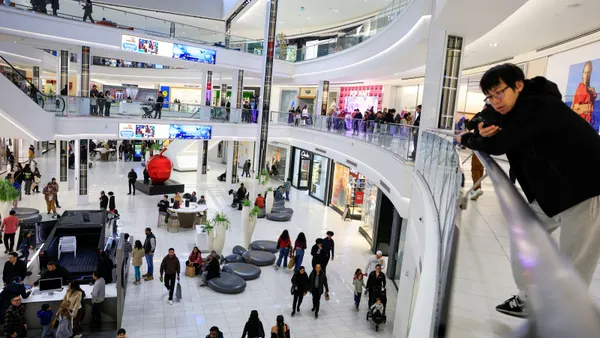American Airlines and United Airlines raised bag fees for checked luggage last week, marking what experts say could be a wave of large carriers adjusting prices.
American and United are unlikely to be alone for long, thanks to the macroeconomic conditions facing the industry today. But as airlines look to cut costs, they will have to be careful not to draw the ire of customers, who are already frustrated by the increasing price of airline tickets and a growing list of add-on charges.
“Bag fees haven't been raised for legacy carriers since 2018, and so it was just a matter of time before we saw this shift happen,” Katy Nastro, travel expert at Going, told CX Dive in an email. Airlines “tend to move in a herd, especially legacy carriers.”
Nastro and Clint Henderson, managing editor of The Points Guy, predict Delta to follow suit in the near term.
American Airlines increased checked luggage fees to $35 online and $40 at the airport. It was previously $30 for both. It also hiked the price of transporting a pet in the cabin to $150 each way.
United raised its bag fees $5 to $40 for a first checked bag at the airport, or $35 if they prepay online. Meanwhile, Delta still charges $30 for a checked bag.
The rising cost of transporting baggage and the cost of fuel led to the decision, Scott Chandler, American’s SVP of revenue management and loyalty, told CNBC. During the company’s January earnings call, executives noted the impact of fuel specifically, adjusting the airline’s expected operating margin and share prices down. American Airlines did not respond by publication time but directed CX Dive to its press release.
Already, smaller airlines like Alaska Airlines and JetBlue have taken steps to raise bag fees.
JetBlue quietly raised its baggage fees twice in the new year. Those changes — the latest of which was made Feb. 1 without an announcement — raised the price for bags checked within 24 hours of departure by $10: $45 for the first checked bag and $60 for the second. It also increased the fee for those outside of the 24-hour window, to $35 first bag and $50 for the second.
“Profits on tickets haven’t increased, and airlines are loathe to raise ticket prices in a hyper competitive market where some prices for seats are actually dropping,” Henderson said in an email.
Increasing bag fees is one way to recoup costs — and avoid taxes.
“Even though average price of airfare is down, airlines have had to deal with rising costs from new labor contracts and fuel, but what's interesting about raising bag fees for domestic fares is that airlines don't have to pay the federal excise tax rate on ancillaries, which means they save a bunch on taxes,” Nastro said.
Add-ons, like checked baggage, are quite profitable. In 2022, bag fees alone made U.S. airlines $6.8 billion, according to the Bureau of Transportation Statistics.
“Remember that airlines don’t pay taxes on fees, so bag fees of $100 make them more money [than] that $100 spent on a ticket,” Henderson said.
Henderson expects airlines to raise prices on other add-ons — like better seat selection and early boarding — to save on taxes, too.
The recent luggage fees are bound to frustrate the customers who need to check bags the most.
“This is likely going to impact families the worst because we tend to see those traveling with little ones frequently check bags even on shorter domestic flights,” Nastro said.
Airlines have to be careful though not to raise prices too quickly and too many places.
“Airlines have to be careful not to ruffle too many feathers when it comes to charging consumers more or else they could lose customers,” Nastro said.










